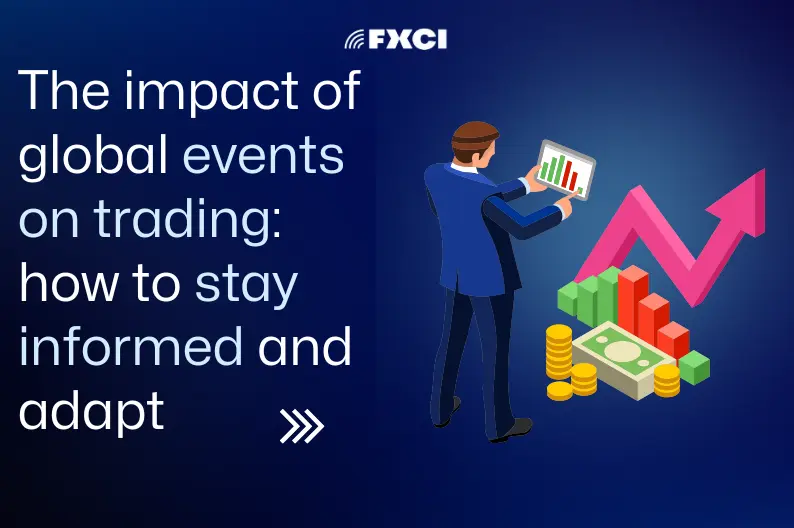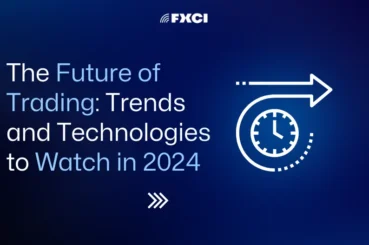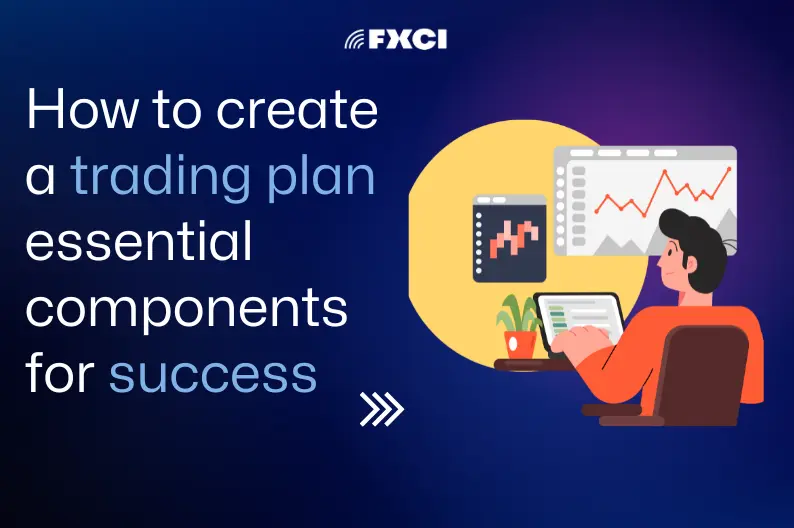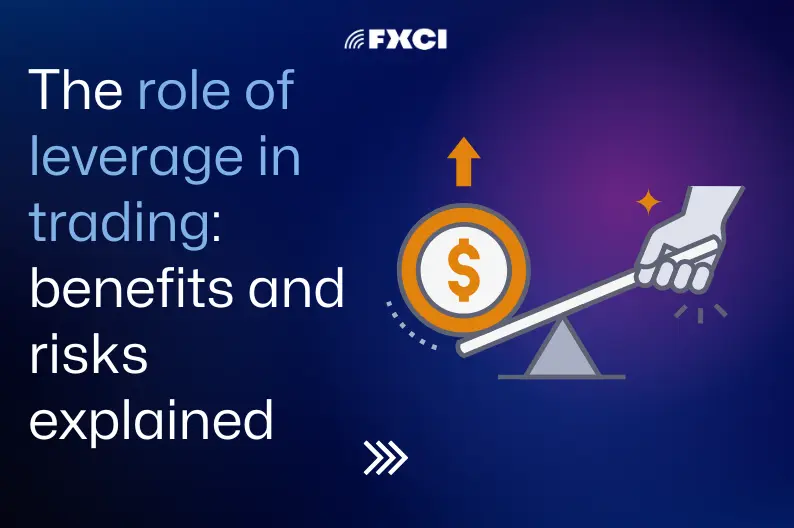
As an investor, it is crucial to remain informed about worldwide economic happenings and grasp their impact on market patterns. Significant events such as alterations in trade policy, variations in currency exchange rates, or changes in consumer sentiment can have a profound effect on the performance of companies and industries.
Keeping up with worldwide events enables you to predict market shifts, recognize potential dangers and advantages in advance, and make astute investment choices to enhance your portfolio.
Although events may appear unrelated or disorderly as they occur, examining them from an economic perspective offers a valuable understanding of potential market reactions and the areas that could be most affected.
By grasping the correlation between worldwide occurrences and market patterns, you acquire a competitive edge in maneuvering through a progressively intricate investing terrain.
Understanding Global Events and Their Impact
Market players react to financial market occurrences. These can take many shapes. All financial market occurrences cause traders and investors to respond. This generally involves buying or selling an instrument or being passive.
Market players estimate how an event will affect their portfolio or the market based on their knowledge and skills. Long-term investors and short-term traders try to improve their market analysis skills.
Market players can construct a durable and effective risk management plan by predicting and playing financial market occurrences. They can also take short-term wagers to capitalize on market opportunities or hedge against adverse outcomes.
Macroeconomic Events
Large and small macroeconomic events exist. Not merely economic or financial. Supply and demand ratios are the most significant macroeconomic factors affecting market behavior. The most prominent element impacting instrument pricing is the disparity between buyers and sellers. When both are balanced, the market stays flat. When supply exceeds demand, prices fall.
Price rises when supply exceeds demand. Other macroeconomic events include monetary and fiscal policy, leading indicator publications, and financial performance statistics. Indices like the Consumer Confidence Index, Purchasing Managers Index, Consumer Price Index, Index of Industrial Production, and others are examples. Inflation forecasts and reports, quarterly job results, economic predictions, interest rate decisions, market regulations, and more are also examples.
Microeconomic Events
As their name implies, microeconomic events are company-level. These events might include earnings reports and performance statistics (sales, quarterly profit, etc.), mergers and acquisitions, product or service development, board personnel changes, reputational difficulties, regulatory fines, and more. These occurrences might cause internal changes inside the firm (e.g., dividend suspension) that can negatively impact investor sentiment.
Stock prices will reflect all this. How abrupt and extreme the changes are generally determines their size. For instance, unanticipated developments will hurt share prices more than those that investors have had time to plan for.
News sensitivity is also relevant. News affects all financial markets, but corporations are most affected. Even bogus news nowadays might make traders respond impulsively (out of fear or greed) before confirmation, endangering firms and investors.
Other Events
Financial markets react to more than economic reasons. They also portray varied events well.
Consider weather predictions. They're vital to commodities markets. Traders can estimate agricultural output patterns and timing their bets using long-term weather forecasts. Black-swan incidents can completely change the market. Though the globe had been watching the virus for years, the COVID-19 pandemic was a black-swan occurrence. Few predicted the global lockdown boom, which disrupted supply systems for all items.
Economic Indicators and Reports
Many economic indicators provide statistical data about a nation's economy. They are used largely as a 'preview' to build performance, trends, and predictions within an economy, such as a business cycle.
Some indications occur daily, weekly, and quarterly. Before the indication happens, major financial personalities speculate, and traders act on such speculations. Economic events have two effects: when disclosed and when contrasted to previous speculations. A large gap between speculation and reality can change the market. Each indicator impacts many markets. For instance, if a government announced more building licenses, it would create more jobs, decrease the unemployment rate, increase consumption, and strengthen the local currency.
Economic Indicator Examples
The U.S. Bureau of Labor Statistics' Non-Farm Payrolls (NFP), released on the first Friday of each month, is an important indication. This report shows changes in US employment from the preceding month, excluding agriculture. That includes 80% of US workers. A surge in new hires shows market growth. Thus, the US Dollar will strengthen. If a trader speculated and bought before the news, he would win. With a slowdown in employment, the Dollar will fall. Regardless, the NFP and speculations will shake instruments.
The European Central Bank's Interest Rate Decision is the latest Euro-centric example. If the ECB raises interest rates and is hawkish about European inflation, the EUR will rise and trend bullishly. If the ECB maintains or cuts the interest rate, the EUR will fall. The EUR will be unaffected if the signal turns out as expected, but the element of 'surprise' will have a higher market impact. Caixin Purchasing Managers' Index (PMI) measures manufacturing activity nationally, focusing on smaller and medium-sized enterprises. The December 2015 release revealed that this month's PMI was lower than projected. As a result, manufacturers may slash staff and production. Other Economic Indicators consider market growth, demand, supply, and other factors that affect markets, instruments, firms, and traders.
Geopolitical Events
Financial markets are also susceptible to being significantly influenced by geopolitical conflicts between countries. Tensions can build as a result of trade disputes, military confrontations, or political differences, eventually leading to market volatility. To provide just one example, the current trade conflict between the United States and China has produced volatility in the stock market and impacted international commerce. Concerns about interruptions in supply have also contributed to oscillations in the oil market, which have been driven by tensions between the United States and Iran.
Natural Disasters and Environmental Events
The aftermath of a natural calamity can have devastating consequences for a nation. Natural disasters like earthquakes, floods, tornadoes, and hurricanes have a disastrous impact on the people, spirit, and physical structures of a nation. Furthermore, these calamities will also exert an adverse effect on a country's monetary unit. The unfortunate loss of lives, significant harm to major factories and distribution centers, and the inherent unpredictability that accompanies natural calamities spell trouble for a currency.
Another major worry is the destruction of infrastructure caused by natural calamities. Having a robust and reliable infrastructure is absolutely crucial for the functioning of any economy. Any harm or destruction to this vital foundation can have a significant and detrimental impact on the overall economic productivity of a particular area. In addition, the extra expenses involved in the cleanup and reconstruction following a catastrophe divert funds from both public and private sectors that could have been allocated to more economically beneficial endeavors instead of being used to repair disruptions in the value chain caused by infrastructure damage.
In addition to the potential decline in consumer spending caused by the current economic uncertainty and the possible erosion of consumer confidence, any positive aspects of the economy can quickly transform into vulnerabilities. Overall, the currency of a country is bound to be adversely impacted by a natural calamity.
Technological Advances and Cybersecurity
As the globe becomes more linked, cyber warfare might affect global financial markets. Financial institutions transport large quantities of sensitive data and money every day, making them attractive targets for cyberattacks.
A financial institution hack may affect global financial markets and the businesses and individuals that use them. Cyberattacks can also damage public trust in financial organizations and the economic system.
Financial institutions have substantially invested in firewalls, intrusion detection systems, and encryption to address this issue. Cyber attackers constantly change their techniques, making it difficult for financial institutions to keep ahead. The entire financial system is linked, so a breach at one institution can swiftly spread to others. This emphasizes the need for international collaboration to combat cyberwar and secure financial markets.
Cyber warfare is a rising threat to global markets and financial services, requiring continual attention and coordination between governments, financial institutions, and other stakeholders to counter the threats.
Staying Informed About Global Events
Stay vigilant on social media platforms
Social networking sites like Twitter and LinkedIn can provide traders with a wealth of valuable information. A plethora of prominent individuals in the financial sector utilize social media platforms to disseminate their ideas and perspectives. Traders, in turn, can leverage social media to remain well-informed about worldwide occurrences and their potential ramifications on the financial markets.
Utilize a News Aggregator
A practical method to stay updated on worldwide events while engaging in trading is through the utilization of a news aggregator. A news aggregator is a platform that gathers news articles from different sources and consolidates them in a single place. With the help of a news aggregator, traders can effortlessly obtain news articles that are pertinent to the financial markets and monitor any noteworthy global occurrences. Exploring alternative methods of trading can prove beneficial in adapting to evolving circumstances, such as employing automated trading software.
Stay updated on economic indicators
Various economic measures, such as the Gross Domestic Product (GDP), inflation rates, and interest rates, offer valuable perspectives on an economy's general well-being. Traders can monitor economic indicators by staying up-to-date with financial news outlets and economic calendars.
By closely monitoring economic indicators, traders can make well-informed choices regarding their trades and predict how global events could potentially influence the financial markets.
Keep an eye on market fluctuations
The level of unpredictability can gauge the prevailing mood in the market and offer valuable clues about the potential consequences of worldwide occurrences. Traders can monitor volatility by tracking indices like the VIX, which gauges the anticipated volatility of the S&P 500 in the upcoming 30 days. Through closely observing market fluctuations, traders can predict possible shifts and adapt their trades accordingly.
Adapting Trading Strategies to Global Events
In order to achieve the expected results in trading, it is essential to adapt your trading strategies to global changes. Otherwise, these strategies will only generate losses. Here are some critical recommendations to help you do this:
Adaptability:
Traders must possess a high level of adaptability to navigate market fluctuations effectively. It's crucial to stay informed about the most recent developments, economic indicators, and shifts in the market. By closely observing these variables, traders can pinpoint promising prospects and adapt their tactics accordingly. Managing risk is crucial for achieving sustained success in trading. Traders need to establish precise levels of risk tolerance and apply suitable risk management strategies, like placing stop-loss orders and diversifying their portfolios. Through efficient risk management, traders can safeguard their funds and reduce the possibility of incurring significant setbacks.
Diversification:
Expanding investments across various asset categories can help reduce risks linked to market fluctuations. Diversifying investments across different sectors, industries, and geographical regions can help traders mitigate the effects of unfavorable market conditions on their overall portfolio. By diversifying, traders can also take advantage of various market opportunities.
Examining Market Indicators:
Traders must carefully assess market signals to make well-informed trading choices. They must thoroughly analyze technical indicators, chart patterns, and fundamental analysis to pinpoint possible points of entry and exit. By integrating various analytical instruments, traders can acquire a holistic comprehension of market patterns and enhance the precision of their forecasts.
Adjusting to Market Sentiment:
The prevailing market sentiment has a substantial impact on the direction of price fluctuations. Traders need to closely monitor market sentiment indicators, like surveys on investor sentiment and analysis of news sentiment, in order to assess the general mood of the market. By harmonizing their trading approaches with the prevailing market sentiment, traders can enhance their likelihood of achieving favorable outcomes.
Always keep in mind that staying ahead in the ever-evolving market landscape necessitates a relentless pursuit of knowledge, keeping a finger on the pulse of market trends, and honing trading tactics. By integrating adaptability, risk mitigation, and variety into your trading strategy, you can navigate the constantly evolving market environment with greater efficiency.
Long-Term vs. Short-Term Strategies
Investors must decide whether to invest long-term or short-term. Both techniques have pros and cons, so choosing one relies on investing goals, risk tolerance, and time horizon. In this post, we'll discuss long-term vs short-term investing and how to choose the best strategy for your portfolio.
Considering Long-Term Investing
Long-term investing entails buying assets to hold for years or decades. It uses compounding and market cycles to slowly create wealth. Long-term investment allows you to ride out market turbulence. Keeping a long-term perspective helps investors avoid rash market choices and focus on their investments' fundamentals.
Long-term investments are ideal for retirement planning, education finance, and nest egg building. They allow you to profit from economic and industrial development over time.
Short-Term Investing Benefits
However, short-term investment entails purchasing and selling assets within days, weeks, or months. To earn quickly, short-term traders exploit price swings and market movements. Rapid gains are a significant benefit of short-term investing. Due to market inefficiencies, momentum, and technical patterns, short-term traders might profit from price changes. Short-term trading techniques may also react to shifting market circumstances, allowing investors to seize chances.
Short-term investments are riskier and require time, talent, and discipline. Brokerage fees and short-term capital gains taxes are higher. Short-term trading requires fast choices and regulating emotions during market volatility, making it psychologically challenging.
Case Studies and Historical Examples
Analyzing practical examples can provide valuable insights into how global events influence financial markets. Now, let's examine 4 remarkable instances:
The 2008 Financial Crisis had widespread ramifications as a result of the downfall of Lehman Brothers and the ensuing global financial turmoil. The global stock markets experienced a sharp decline, credit markets came to a standstill, and governments across the globe took numerous steps to restore stability to the economy. This situation underscored the interdependence of worldwide financial markets and the significance of effectively managing potential risks.
Crisis of European Debt: Commencing in 2009, the European debt crisis unraveled as numerous European nations encountered substantial debt loads. This occurrence had a significant influence on the euro, bond markets, and equity markets throughout the continent. This showcased the way in which problems with government debt can have a far-reaching impact on the worldwide economic system.
1995–2000 Dot-Com Bubble. Many US Internet enterprises were overvalued during the dot-com 'bubble.' Positive coverage led to a start-up explosion and a concern of losing out on a digital gold rush as the internet was commercialized and monetized. After the AOL/Time Warner merger, the bubble popped in 2000. Panic selling caused several company collapses and investment losses. This dropped the market by 10% and left many missing out on Amazon and eBay, which are still performing strongly.
Wall Street Crash (1929). A historic market meltdown on the New York Stock Exchange (NYSE) caused the Great Depression. In October 1929, the NYSE was riding high following a nine-year bull market. Despite signals of an economic slowdown, Americans of all backgrounds invested in the stock market, believing it would rise forever. Investors kept buying NYSE shares despite steel output stalling, car sales falling, and consumer borrowing rising. On Black Tuesday, October 29, 1929, merchants realized the market was collapsing. In one day, 16m shares were exchanged, and $30 bn was lost—twice the national debt. Panic selling bankrupted thousands of investors, causing a ten-year downturn.
Closing Thoughts
Events happening around the world can significantly influence the performance of financial markets. As a trader, it is crucial to stay updated and well-informed about these occurrences. By utilizing a news aggregator, keeping tabs on economic indicators, closely observing volatility, remaining engaged on social media platforms, and consistently expanding their knowledge, traders can stay abreast of worldwide events and execute well-informed trading choices.
Nevertheless, it is crucial to remember that market fluctuations are not consistently foreseeable, and traders must possess a robust risk management plan to alleviate potential setbacks. By striking a harmonious equilibrium between expertise and the art of managing uncertainty, traders can adeptly maneuver through worldwide occurrences and seize lucrative market prospects.
We appreciate your interest in the impact of global events on trading. Please continue to build your skills and learn more on our FXCI blog. We regularly update the information and share the most valuable insights with you. Also, remember to explore other resources available on the internet. We wish you success in trading and all the best.





